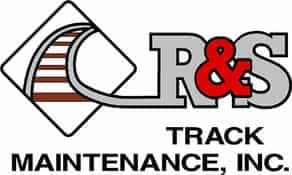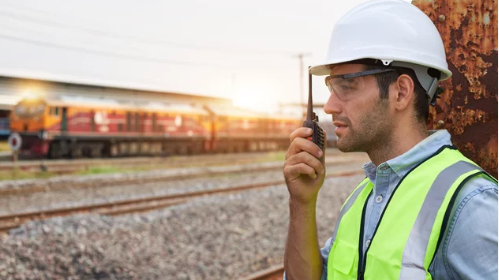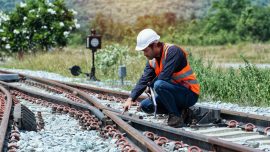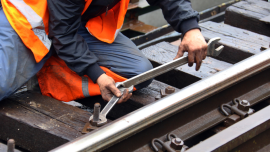How the Growth of Railroads Transformed Six Key Industries
According to the Bureau of Labor Statistics (BLS), Railroads haul the most freight of any transport type in the US when you consider both the amount of weight carried as well as the sheer distance it must travel on the railroad system. It’s clear that without the railroad system, many industries would cease to operate as the sheer volume of their output would be impossible to carry by other means of transportation. Supporting the claim that the railroad system is an integral part of the economic backbone of the country, the BLS also states that the railroad system is a great barometer of how well the economy is doing. Nevertheless, here are 3 industries that strongly rely on the railroad system to have their needs met.
1 – The Automotive Industry
It would be all too easy to state that the coal or steel industry relies on railroads the most, that would be a given. Who relies on steel? There are two “essential” industries that we will list below, but this is a good example of an industry that is more commercially oriented but strongly relies on freight. Not only are cars great, big pieces of steel put together well, but they’re also reliant on rail transport to get to where they need.
The Automotive Industry Relies Heavily on the Railroad System to Meet Their Needs
Sure, when you visit a dealership and they need to deliver your car before you can drive it home, perhaps that one car may be driven down or towed to your location, but how does all of the inventory get there? Multiple dealerships with hundreds of cars, they are not manufactured on location of course! These are things civilians outside of the industry do not consider. There are 40+ automotive plants in the United States alone, consider how many cars are produced in the country by the leading manufacturers. The railroad system carries all of their output to the respective states they need to end up in.
2 – Construction
Without train freight, construction would occur at a pace far too slow for anyone’s needs. Construction is always ongoing, as society continues to modernize to the latest advancements in architectural standards, developing new land, or renovating existing infrastructure, train freight supplies the materials. Steel, stone, wood, plastics, and minerals all heavy cargo and without powerful locomotives and well maintained tracks, they’d never make it there. According to the AAR (Association of American Railroads), freight railroads moved 1.5 million carloads of lumber, steel, and other materials in 2018. Not only that, but 20% of all steel products
3 – Agriculture
Before railroads, agriculture was a primarily localized affair. Farmers could only sell what could be consumed in nearby markets, limiting both their reach and their income. The arrival of railroads changed the game entirely. For the first time, perishable goods like meat and dairy could be transported over long distances, thanks to innovations like refrigerated cars. This opened up larger markets for farmers and made seasonal fruits and vegetables available year-round in places they weren’t grown.
Railroads also facilitated the mass importation of inexpensive agricultural equipment and fertilizers, enabling farmers to cultivate land more efficiently. As railroads branched further into rural areas, farming communities gained the means to move large quantities of produce swiftly to cities, thereby increasing their earning potential and paving the way for the modern agribusiness model we see today.
The Agriculture Is Another Great Example that Relies Heavily on the Railroad System
While freight carries many things relevant to farming such as fertilizers or goods such as canned foods, grain is one of the most important things transported. Things such as corn, oats, wheat, rice, barley, etc, are used in just about every food industry you can think of. These base ingredients are the essence of the country’s dietary needs; consider how much grain is needed to feed livestock alone.
4 – Manufacturing
Before the growth of railroads, manufacturing was a fragmented industry. Producers were constrained by the limited availability and high costs of transporting raw materials and finished goods. Railroads brought uniformity and speed to this process. Manufacturers could now reliably procure materials from distant places, which not only drove down costs but also allowed for greater specialization. For instance, a factory in the Northeast could use southern cotton for textile production at a significantly lower cost and higher speed than before.
This seamless flow of materials and goods also meant that manufacturers could distribute their products across a much larger territory. In doing so, railroads helped establish national markets and encouraged the development of mass production techniques, like assembly lines, which thrived on high volumes and economies of scale.
5 – Mining
Mining industries experienced a renaissance of sorts with the advent of railroads. Extracting valuable materials like coal, iron, and copper was an arduous task that required immense capital and labor. The isolated locations of many mines further complicated the logistics, making it cost-prohibitive to transport these resources to where they were most needed.
Railroads solved these problems by providing a fast and reliable way to move mined resources to factories, ports, and refineries. For example, coal, vital for the steel industry and electricity generation, could now be moved in large quantities to meet burgeoning demand. This not only made mining operations more profitable but also fueled industrialization in a symbiotic relationship.
6 – Retail
Railroads had a transformative effect on the retail industry by inspiring the inception of the department store. These large retail establishments, often situated near railway stations in bustling city centers, offered a wide variety of goods, from clothing and furniture to foodstuffs. Before railroads, maintaining such diverse inventory would have been a logistical nightmare. However, the efficient transportation network allowed for quick restocking and a greater variety of goods, attracting consumers from far and wide.
The ease of transportation also influenced consumer behavior. Weekend excursions to large cities for shopping became a popular activity, giving rise to the concept of ‘shopping as entertainment.’ Moreover, mail-order catalogs grew in prominence, as retailers could promise quick and reliable delivery of goods via rail.
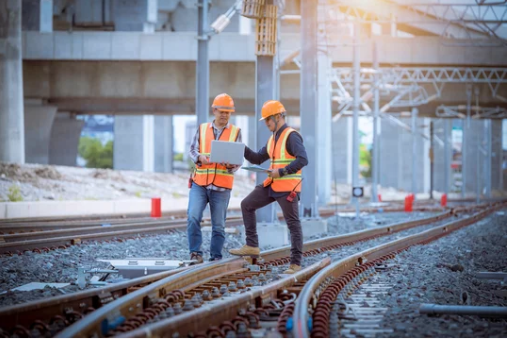
What Industries Benefit From Railroads?
Railroads opened up new markets for many different industries, including agriculture, mining, and manufacturing. Farmers could now ship their crops to cities and other states more easily and cheaply than ever before. Minerals and other resources could be transported from mines to factories more efficiently. And finished products could be shipped to distant markets quickly and affordably. All of this led to increased production and profits for many businesses, as well as more jobs for workers. Railroads are important for increasing profits.
What industries could benefit from our railroad services? The answer is that many businesses can, and still do benefit from our services. We offer a fast, reliable, and relatively inexpensive way to move people and goods around. This has led to increased production and profits for many businesses, as well as more jobs for workers. Many different types of businesses have benefited from the development of railroads, including agriculture, mining, manufacturing, and even tourism. Railroads have helped farmers ship their crops to markets more easily and cheaply than ever before. They have helped miners transport minerals and other resources from mines to factories more efficiently. And they have helped manufacturers ship finished products to distant markets quickly and affordably. All of this has led to increased production and profits for railroad companies across the United States.
Other questions that people have about railroad companies and how they are used across industries are as follows:
- What are the types of businesses that have benefited from railroads?
- What are the products that have been transported by railroads?
- What are some of the advantages of using railroads for transportation?
- What are some of the disadvantages of using railroads for transportation?
- What is the future of railroads in America?
Only time will tell what the future holds for railroads in America. But one thing is certain: they have played a vital role in the development of our country and will continue to do so for many years to come. That’s why we strive to be the best Midwest Railroad Contractor in North America. Some of our railroad services include consulting, surveying, track installation, track rehabilitation, & track maintenance.
Midwest Railroad Contractor – R&S Track Inc.
At RS Track, we pride ourselves on our track rehabilitation and maintenance. When the tracks are down, so too are these industries (and many more) that make up much of the country’s need for raw materials.
If you are seeking a qualified railroad track contractor, look no further than R&S Track. We boast a 100% customer satisfaction policy and are a compliant and certified Railroad Track Contractor.
Contact us today to receive price estimate or if you have any questions you’d like to ask us!
